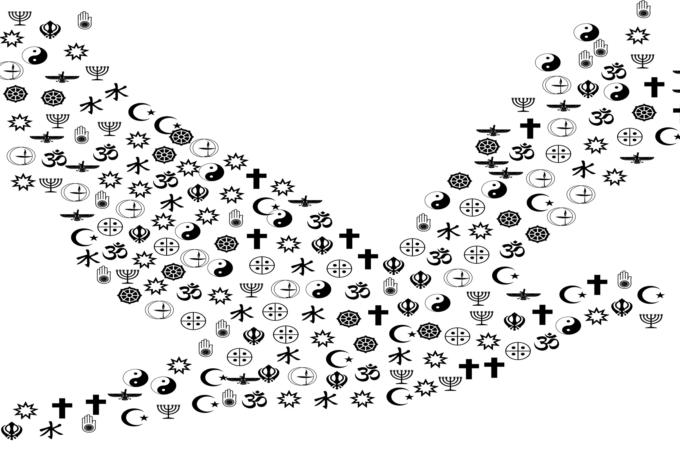Sound moral judgments
It's not just our political leaders who have a monopoly on sound moral opinions and judgements.
Not surprisingly, the immediate opposition from religious leaders, including Catholics, to President Donald Trump's immigration ban on people coming to the United States from certain Muslim countries has been strong and vocal. Millions of Americans felt that the announcement was ill advised and not well thought out. Some felt strongly that it was callous and insensitive. As somebody who closely follows the actions and comments of religious leaders from across the world, I believe that the White House's action could have been handled more diplomatically. Traditionally, for too many ill-informed American politicians and the media, conferring with respected religious leaders is not a high priority.
Frankly, I have read and seen first-hand over the years how many high ranking political operatives have had such little interest in understanding the political and diplomatic value that religious people's opinions could have. I often heard world leaders refer to the Vatican as the "world's most important listening post." This is especially the case in the United States where the separation of faith and politics is demanded by secular elites, academics and national media pundits. Even Catholic colleges and professors go out of their way to tell the public how secular they are.
This wasn't always the way, but politicians today are more concerned about what's popular than what's right. There will always be a healthy difference on issues between church and state, but that shouldn't create a barrier to constructive dialogue. I do not fault presidents or prime ministers for this vacuum of sharing information by ideologues who are driven by their own ideology and bias -- political bureaucrats who go out of their way to shelter their "bosses" from hearing the moral side of issues instead of just what's politically popular.
In the meantime, the unsuspecting public has no idea of what is going on behind closed doors. They only know what they are told by people with a personal bias. The information the public receives can be entertaining and colorful, but oftentimes, it has very little relevance to fact and good public policy. Religious leaders should be given an opportunity to express their point of view, but certainly the ultimate decision should be made by our elected officials. I remember advocating for the president to appoint a permanent advisor on his staff to confer with various religious officials and constituencies at The White House. I feel that this is even more important today for President Trump. Several brilliant and savvy public-religious scholars immediately come to mind: Joe Zwilling, Greg Tracy, Raymond Arroyo, George Weigel, Phil Moran, Tom Harvey and Maura Doyle. It's not even about religion but promoting good and honest government and what's best for our country and society. If well-known political operatives can help set our countries policies, why can't people contribute with sound moral opinions. Frankly, I don't think our country would be having this contentious debate today if our leaders started listening to people whose first and primary interest is not polls and winning elections, but sound moral values. Our elected officials deserve the respect and advice from all loyal Americans. Not just those with a microphone and a platform.
- Raymond L. Flynn is the former U.S. Ambassador to the Holy See and Mayor of Boston.



















